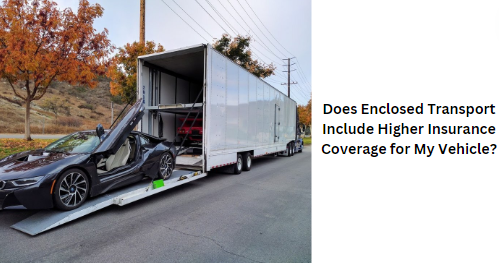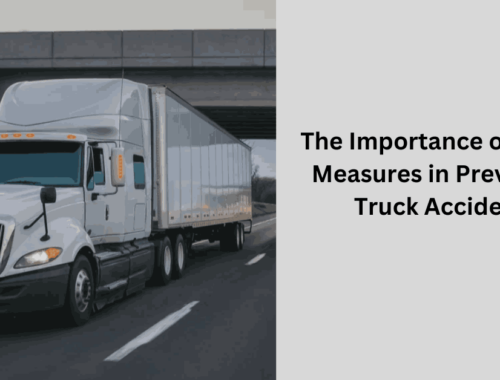
Does Enclosed Transport Include Higher Insurance Coverage for My Vehicle?
When it comes to transporting your vehicle, whether it’s a vintage car, luxury automobile, or a cherished classic, ensuring its safety during transit is paramount. One of the options often considered for premium protection is enclosed transport. But does enclosed transport come with higher insurance coverage for your vehicle? Let’s delve into this question and understand the nuances of enclosed transport insurance.
Enclosed transport, as the name suggests, involves transporting vehicles in trailers or containers that provide complete protection from external elements such as weather, road debris, and potential damages. This method is preferred for high-value vehicles due to the extra layer of security it offers. However, the level of insurance coverage provided with enclosed transport can vary depending on several factors.
Firstly, it’s essential to understand that insurance coverage in transportation often comes down to the carrier’s policies and the type of insurance they carry. Enclosed transport carriers typically offer higher insurance coverage compared to open carriers, primarily because of the added protection enclosed trailers provide.
Enclosed transport insurance typically covers damages caused by accidents, collisions, theft, vandalism, and other unforeseen events during transit. However, it’s crucial to review the insurance policy provided by the carrier to understand the extent of coverage and any exclusions that may apply.
One significant advantage of enclosed transport insurance is its ability to provide coverage for the full value of your vehicle. High-value vehicles often require specialized insurance coverage to ensure they are adequately protected during transit. Enclosed transport insurance can be tailored to meet the specific needs of expensive or rare automobiles, providing peace of mind to owners.
Moreover, enclosed transport insurance may offer additional benefits such as supplementary liability coverage, which protects against third-party claims in case of accidents involving the transported vehicle. This extra layer of protection can be valuable, especially when transporting valuable assets.
Another aspect to consider is the reputation and track record of the enclosed transport carrier. Established carriers with a history of safe and secure transportation are likely to offer comprehensive insurance coverage and prioritize the safety of your vehicle. Researching and selecting a reputable carrier can contribute significantly to ensuring your vehicle receives adequate protection during transit.
Communication with the carrier regarding insurance coverage and any additional options is essential. Some carriers may offer customizable insurance packages to suit your specific requirements, including increased coverage limits or additional services like expedited shipping or GPS tracking.
While enclosed transport insurance generally provides higher coverage levels than open carriers, evaluating the cost-effectiveness of this option is essential. Enclosed transport tends to be more expensive than open transport due to the specialized equipment and additional security measures involved. Therefore, weighing the benefits of increased insurance coverage against the associated costs is crucial.
When determining whether enclosed transport insurance is the right choice for your vehicle, consider factors such as the vehicle’s value, sentimental significance, and risk tolerance. For high-value or irreplaceable vehicles, the added protection and peace of mind provided by enclosed transport insurance may outweigh the higher cost.
Additionally, factors such as the distance of transport, route conditions, and seasonal weather patterns may influence the decision to opt for enclosed transport and the level of insurance coverage required. For long-distance transport or routes with adverse weather conditions, enclosed transport can provide superior protection against environmental hazards.
In conclusion, enclosed transport insurance typically offers higher coverage levels and enhanced protection for your vehicle during transit. However, the extent of coverage may vary depending on the carrier’s policies and the specific insurance package chosen. By understanding the nuances of enclosed transport insurance and working with reputable carriers, vehicle owners can ensure their prized possessions are safeguarded during transport.
Whether it’s a vintage sports car, a luxury sedan, or a classic collectible, entrusting your vehicle to enclosed transport with adequate insurance coverage can provide the peace of mind you need when transporting valuable assets. Prioritize safety and protection by opting for enclosed transport insurance and enjoy the confidence of knowing your vehicle is in safe hands throughout its journey.
But let’s delve deeper into the specifics of enclosed transport insurance and how it differs from standard insurance coverage. Enclosed transport insurance is tailored specifically for vehicles being transported in enclosed trailers or containers. These trailers provide a higher level of protection than open carriers, shielding the vehicle from various external factors that could cause damage during transit.
One of the key differences between enclosed transport insurance and standard insurance coverage is the scope of protection offered. Enclosed transport insurance often provides comprehensive coverage for a wide range of risks, including accidents, theft, vandalism, and natural disasters. This comprehensive coverage is essential for high-value vehicles, as it fully covers any potential damages incurred during transit.
Moreover, enclosed transport insurance typically offers higher coverage limits compared to standard insurance policies. This means that in the event of a claim, the insurance provider will reimburse the full value of the vehicle up to the specified coverage limit. Knowing that their investment is fully protected during transport, this higher coverage limit provides added peace of mind for vehicle owners.
Another important aspect of enclosed transport insurance is its flexibility and customization options. Many insurance providers offer tailored insurance packages to meet the specific needs of individual vehicle owners. These packages may include additional coverage options such as supplementary liability coverage, roadside assistance, or expedited shipping services. By customizing the insurance coverage to suit their requirements, vehicle owners can ensure their vehicle is adequately protected during transit.
Furthermore, enclosed transport insurance is often backed by reputable insurance companies with extensive experience in the transportation industry. These insurance providers understand the unique risks associated with transporting high-value vehicles and have the expertise to provide specialized coverage solutions. This expertise and reliability give vehicle owners confidence in the quality and reliability of the insurance coverage provided.
In summary, enclosed transport insurance offers comprehensive coverage and higher vehicle protection levels during transit. With its tailored insurance packages, higher coverage limits, and flexibility, enclosed transport insurance gives vehicle owners the peace of mind they need when transporting their valuable assets. By choosing enclosed transport insurance, vehicle owners can ensure that their investment is fully protected against any potential risks or damages during transit.
You May Also Like

Why Hiring a Webflow Developer is Beneficial for Your Business?
August 18, 2023
How Long Does It Take to Charge a Vuse E-Cigarette? Exploring Charging Times and Tips
August 10, 2023

